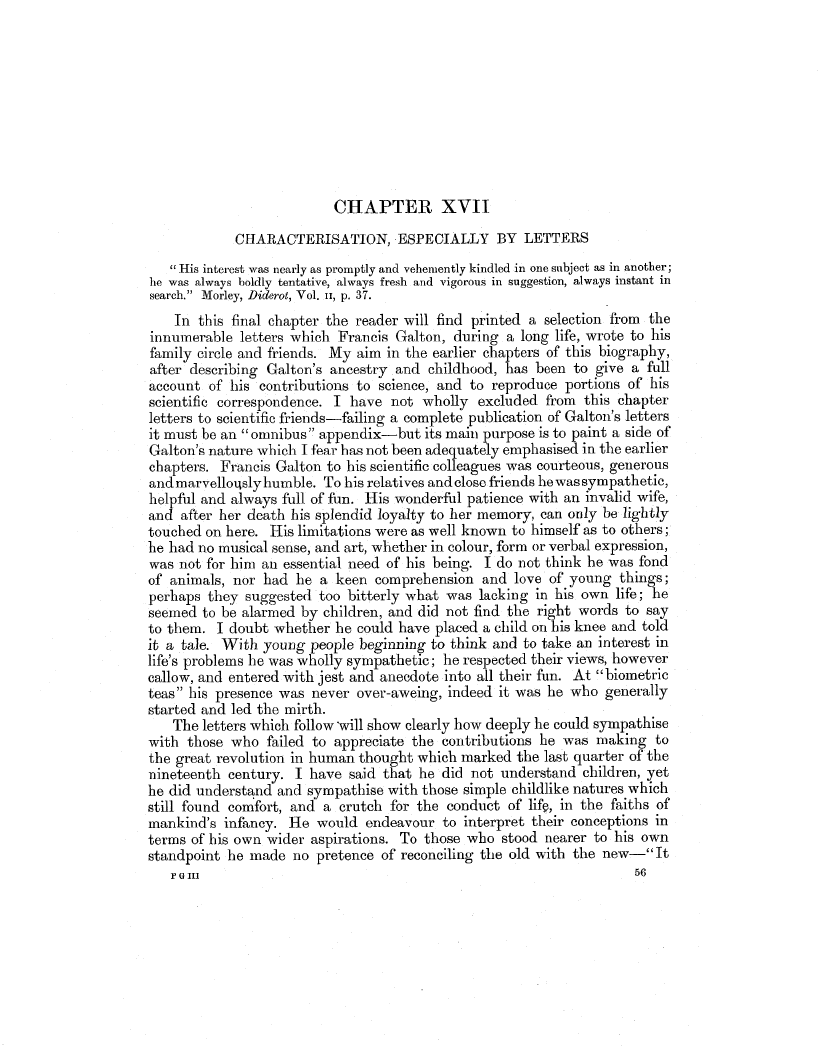| ||||||

OCR Rendition - approximate
CHAPTER XVII CHARACTERISATION, ESPECIALLY BY LETTERS ~~ His interest was nearly as promptly and vehemently kindled in one subject as in another; he was always boldly tentative, always fresh and vigorous in suggestion, always instant in search." Morley, Diderot, Vol. ii, p. 37. In this final chapter the reader will find printed a selection from the innumerable letters which Francis Galton, during a long life, wrote to his family circle and friends. My aim in the earlier chapters of this biography, after describing Galton's ancestry and childhood, has been to give a full account of his contributions to science, and to reproduce portions of his scientific correspondence. I have not wholly excluded from this chapter letters to scientific friends-failing a complete publication of Galton's letters it must be an "omnibus" appendix-but its main purpose is to paint a side of Galton's nature which I fear has not been adequately emphasised in the earlier chapters. Francis Galton to his scientific colleagues was courteous, generous and marvellously humble. To his relatives and close friends he was sympathetic, helpful and always full of fun. His wonderful patience with an invalid wife, and after her death his splendid loyalty to her memory, can only be lightly touched on here. His limitations were as well known to himself as to others; he had no musical sense, and art, whether in colour, form or verbal expression, was not for him an essential need of his being. I do not think he was fond of animals, nor had he a keen comprehension and love of young things; perhaps they suggested. too bitterly what was lacking in his own life; he seemed to be alarmed by children, and did not find the right words to say to them. I doubt whether he could have placed a child on his knee and told it a tale. With young people beginning to think and to take an interest in life's problems he was wholly sympathetic; he respected their views, however callow, and entered with jest and anecdote into all their fun. At "biometric teas" his presence was never over-aweing, indeed it was he who generally started and led the mirth. The letters which follow 'will show clearly how deeply he could sympathise with those who failed to appreciate the contributions he was making to the great revolution in human thought which marked the last quarter of the nineteenth century. I have said that he did not understand children, yet he did understand and sympathise with those simple childlike natures which still found comfort, and a crutch for the conduct of life, in the faiths of mankind's infancy. He would endeavour to interpret their conceptions in terms of his own wider aspirations. To those who stood nearer to his own standpoint he made no pretence of reconciling the old with the new-" It P Q 111 56
|